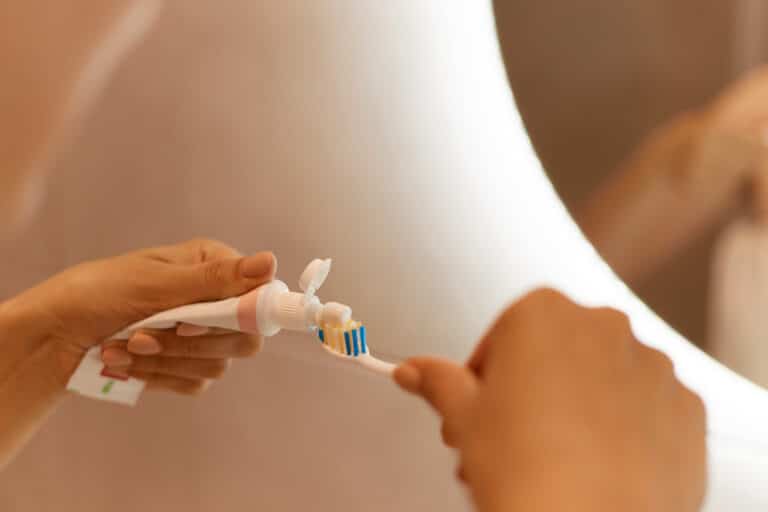Your smile is more than just a reflection—it’s your personal signature, a testament to your confidence and charm.
Enter the realm of dental aesthetics, where two revolutionary solutions, dental crowns and veneers, await to elevate your smile to new heights. This guide reveals the transformative power of these treatments, helping you discover the best fit for your radiant smile.
Elevating your Smile with Dental Crowns and Veneers
Dental crowns and veneers aren’t merely restorations. Instead, they are gateways to a brighter, more confident you. While both methods rejuvenate your smile, they differ in approach. Veneers delicately cloak the front of your teeth, while crowns provide comprehensive coverage, safeguarding the entire tooth surface.

We recognise the significance of investing in your smile, both emotionally and financially. That’s why we’re here to support you every step of the way, with integrity and care. Whether you’re battling discolouration, chips, gaps, or cracks, we’re committed to transforming your dental journey into a seamless, empowering experience.
What are Dental Crowns?
Picture a shield, specifically built to strengthen and protect your tooth. That is the essence of a dental crown.

Crafted from resilient materials like porcelain or ceramic, these custom-made restorations encase the entire tooth surface above the gum line. Not only do they fortify weakened or damaged teeth, but they also restore both the form and function of your smile.
Dental Crown Procedure: What to Expect?
Getting a dental crown typically involves two visits. Initially, an X-ray is taken to assess decay and underlying factors like inflammation or pulp injury. In severe cases, a preliminary root canal treatment may be necessary.

Your dentist will then anaesthetise the surrounding gum tissue and delicately reshape the tooth to accommodate the crown. Following this, an impression of the tooth is meticulously captured to ensure a precise fit. A temporary crown is then affixed to shield and protect the tooth until the permanent crown is ready.
During the second visit, the temporary crown is removed with precision, making way for the permanent restoration. Your dentist evaluates the fit and shade to seamlessly blend with your natural teeth. Upon confirmation, the tooth is gently numbed with local anaesthesia, and the permanent crown is securely bonded in place, ensuring a durable and aesthetically pleasing result.
What are Dental Veneers?
In contrast, dental veneers, crafted from ultra-thin layers of porcelain and composite resin, delicately cloak the front surface of your teeth. Their subtle yet transformative approach not only preserves the integrity of your original tooth structure but also delivers a stunning cosmetic enhancement.

Dental Veneer Procedure: What to Expect?
The procedure typically takes two to three visits to the dentist. Initially, a comprehensive oral examination is conducted to assess your suitability for veneers and determine the ideal shade and fit for your unique smile.
Your dentist meticulously shapes and trims the teeth slated for veneer application, often under local anaesthesia, to create an optimal canvas for the veneers. Precise impressions and moulds of your teeth are then taken to capture the exact shape and size required for the veneers.

Once the final design is determined, temporary veneers are temporarily affixed to the prepared teeth while the moulds and impressions are sent to a specialised dental lab for fabrication. After a brief waiting period, your custom-made veneers are ready for placement.
During the final appointment, your dentist carefully removes the temporary veneers, ensuring a thorough cleaning of your teeth. Using dental cement and ultraviolet light, the permanent veneers are meticulously bonded to the outer surface of your teeth, creating a seamless and enduring transformation that radiates confidence and beauty.
Who benefits from Dental Crowns and Veneers?
For those grappling with significant tooth damage like extensive decay, cracks, or large fillings, the transformative power of dental crowns shines through as the ideal solution.
Conversely, dental veneers emerge as the preferred choice for individuals seeking to elevate the aesthetic allure of their smile, addressing minor imperfections such as chips, stains, or gaps while preserving the integrity of their teeth.
Exploring the Contrasts between Dental Crowns and Veneers
Enhancing Dental Health: Dental Crown vs Veneer
Dental crowns are designed to provide robust structural support and protection for teeth that have undergone significant damage or decay. In contrast, veneers primarily focus on enhancing the appearance of teeth, requiring minimal alteration to the tooth’s structure.
Cost Comparison: Dental Crown vs. Veneer
Dental crowns are known for their durability and strength, making them a reliable option for strengthening weakened teeth. The cost of crowns varies based on factors such as material quality and procedural complexity, typically ranging from typically ranging from $1,035 to 1,365 per crown in Singapore.
On the other hand, porcelain veneers offer a cosmetic solution for transforming smiles, with prices ranging from $250 to $1,300 per tooth. This range accounts for the material options available, from the higher-end porcelain to more affordable composite alternatives. Despite the initial expense, the long-term aesthetic benefits of porcelain veneers make them a justified investment.
Evaluating the Pros and Cons of Dental Crowns and Veneers
Pros of Dental Crowns
Strength and Durability: Crafted from robust materials like porcelain, ceramic, or metal alloys, dental crowns provide exceptional strength and long-lasting protection for weakened or damaged teeth.
Restoration of Function: In addition to enhancing your smile’s appearance, crowns restore the functionality of compromised teeth. They enable comfortable chewing and prevent further damage, contributing to overall dental health.
Improved Appearance of Tooth: While primarily functional, dental crowns significantly enhance smile aesthetics. Porcelain crowns, in particular, closely resemble natural teeth, enhancing the overall appearance of your smile.
Cons of Dental Crowns
Greater Tooth Reduction: A significant drawback of dental crowns is the need for substantial tooth reduction to accommodate the crown, potentially compromising the natural integrity of the tooth structure.
Increased Dental Sensitivity: Improperly fitted crowns or those rubbing against neighbouring teeth can lead to sensitivity to hot and cold substances. Additionally, the process of crown placement may result in enamel reduction, further contributing to sensitivity.
Possibility of Nerve Damage: Like any medical procedure, getting a dental crown carries the risk of potential complications, such as over-filling a tooth before crown placement, which can lead to nerve damage.
Pros of Dental Veneers
Minimal Tooth Alteration: Unlike dental crowns, veneers require minimal alteration of the natural tooth structure. This conservative approach preserves more of the tooth’s enamel, promoting long-term dental health.
Cosmetic Enhancement: Dental veneers offer increased aesthetic appeal, concealing stains, correcting minor misalignments, or reshaping teeth to enhance the appearance of your smile.
Stain Resistance: Veneers are highly resistant to stains, maintaining a bright and vibrant smile for years. Unlike natural enamel, they withstand discolouration due to factors like coffee, tea, or tobacco consumption.
Cons of Dental Veneers
Limited Restorative Capabilities: While effective for cosmetic enhancements, veneers have limited restorative capabilities compared to dental crowns. They primarily address cosmetic imperfections rather than structural damage or decay.
Irreversible Procedure: Getting dental veneers involves the irreversible removal of a thin layer of enamel. Once enamel is removed, it cannot be restored, necessitating lifelong commitment to veneer maintenance and replacement as needed.
Risk of Damage: Despite their durability, veneers are prone to chipping or fracture, especially when subjected to excessive force or trauma. Avoiding habits like nail-biting or chewing hard objects is crucial to prevent damage to veneers.
Maintenance and Care During Treatment Process: Dental Crown vs Veneer
Both dental crowns and veneers necessitate similar maintenance routines, comprising regular brushing, flossing, and scheduled dental check-ups.
However, due to their full coverage, crowns may require additional attention in cases of underlying tooth decay or gum disease.
Choosing the Right Option for You
Choosing between dental crowns and veneers is a deeply personal decision, shaped by your individual dental needs and desires. At our practice, Dr. Khoo, a distinguished leader in dentistry with expertise in aesthetic dentistry across the UK, Hong Kong, and Singapore, stands at the forefront. With a relentless dedication to excellence, our specialists collaborate closely with patients, employing evidence-based approaches to craft radiant smiles and remain at the forefront of dental innovation.
During your consultation, our team will conduct a comprehensive assessment, ensuring tailored recommendations for your unique circumstances. Our ultimate aim is to unveil a bespoke solution, designed to elevate your smile. Schedule your consultation today and let us help you achieve the radiant smile you deserve!
Frequently Asked Questions (FAQ)
How long do dental crowns and veneers last?
Dental crowns and veneers can endure for several years with proper care. Crowns typically maintain their integrity for 10 to 15 years, while veneers can last 10 years or more.
Are dental crowns and veneers reversible?
The process of obtaining dental crowns involves significant tooth reduction, rendering it irreversible.
Similarly, veneers, despite minimal alterations, are considered irreversible due to enamel removal. Porcelain veneers are permanent, with a lifespan of 10 to 15 years. However, composite veneers are removable by a dentist and last between 4 and 8 years.
Do dental crowns and veneers feel natural?
Advancements in dental materials and techniques ensure that both crowns and veneers look and feel natural once placed. Patients typically adapt quickly, experiencing minimal discomfort or sensitivity.
Will dental insurance cover the cost of crowns or veneers?
Dental insurance coverage varies based on individual policies and treatment reasons. While some plans may partially cover the cost of crowns or veneers, it’s advisable to consult your insurance provider for specific details!


